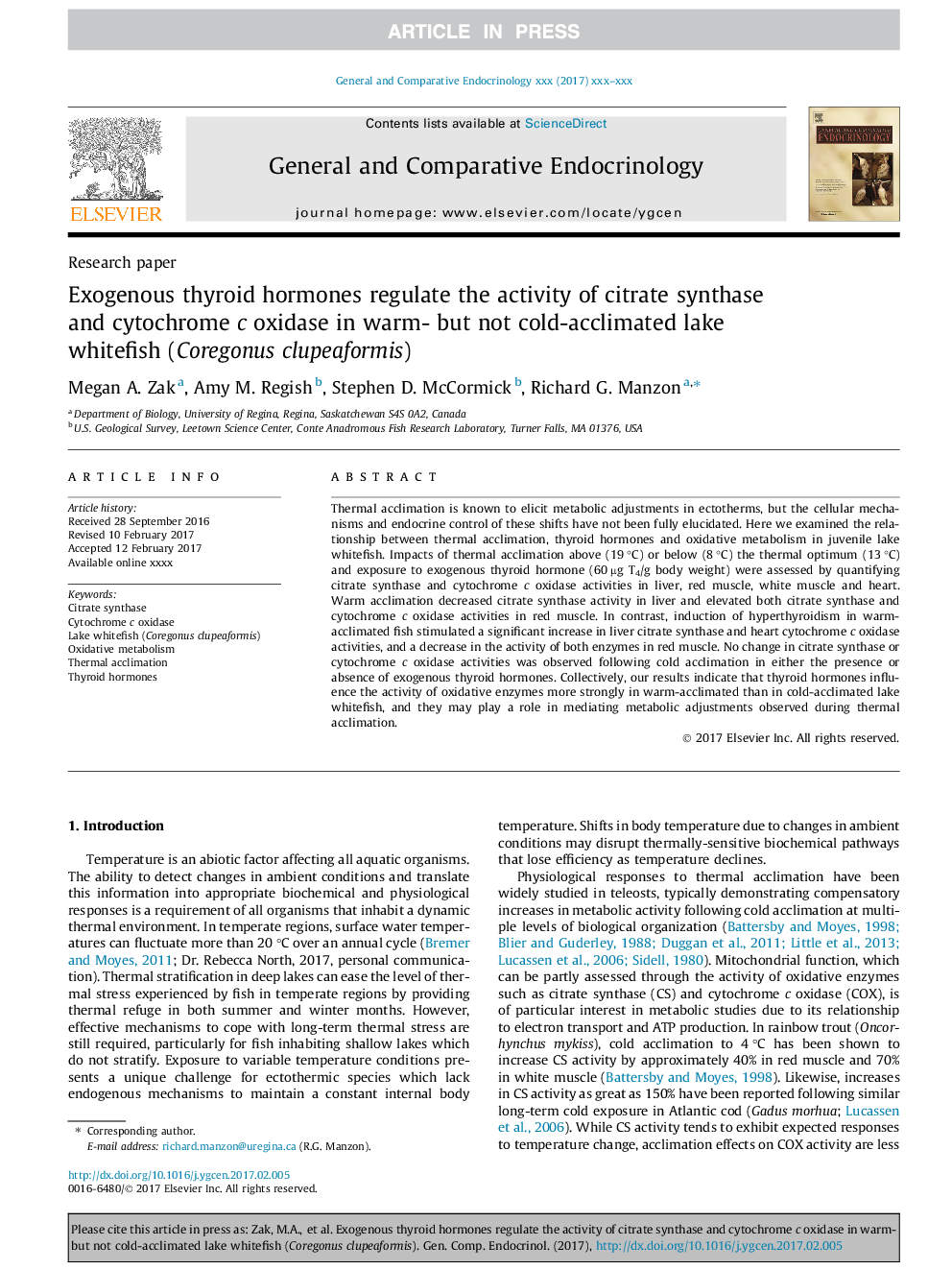| Article ID | Journal | Published Year | Pages | File Type |
|---|---|---|---|---|
| 5587797 | General and Comparative Endocrinology | 2017 | 8 Pages |
Abstract
Thermal acclimation is known to elicit metabolic adjustments in ectotherms, but the cellular mechanisms and endocrine control of these shifts have not been fully elucidated. Here we examined the relationship between thermal acclimation, thyroid hormones and oxidative metabolism in juvenile lake whitefish. Impacts of thermal acclimation above (19 °C) or below (8 °C) the thermal optimum (13 °C) and exposure to exogenous thyroid hormone (60 µg T4/g body weight) were assessed by quantifying citrate synthase and cytochrome c oxidase activities in liver, red muscle, white muscle and heart. Warm acclimation decreased citrate synthase activity in liver and elevated both citrate synthase and cytochrome c oxidase activities in red muscle. In contrast, induction of hyperthyroidism in warm-acclimated fish stimulated a significant increase in liver citrate synthase and heart cytochrome c oxidase activities, and a decrease in the activity of both enzymes in red muscle. No change in citrate synthase or cytochrome c oxidase activities was observed following cold acclimation in either the presence or absence of exogenous thyroid hormones. Collectively, our results indicate that thyroid hormones influence the activity of oxidative enzymes more strongly in warm-acclimated than in cold-acclimated lake whitefish, and they may play a role in mediating metabolic adjustments observed during thermal acclimation.
Keywords
Related Topics
Life Sciences
Biochemistry, Genetics and Molecular Biology
Endocrinology
Authors
Megan A. Zak, Amy M. Regish, Stephen D. McCormick, Richard G. Manzon,
